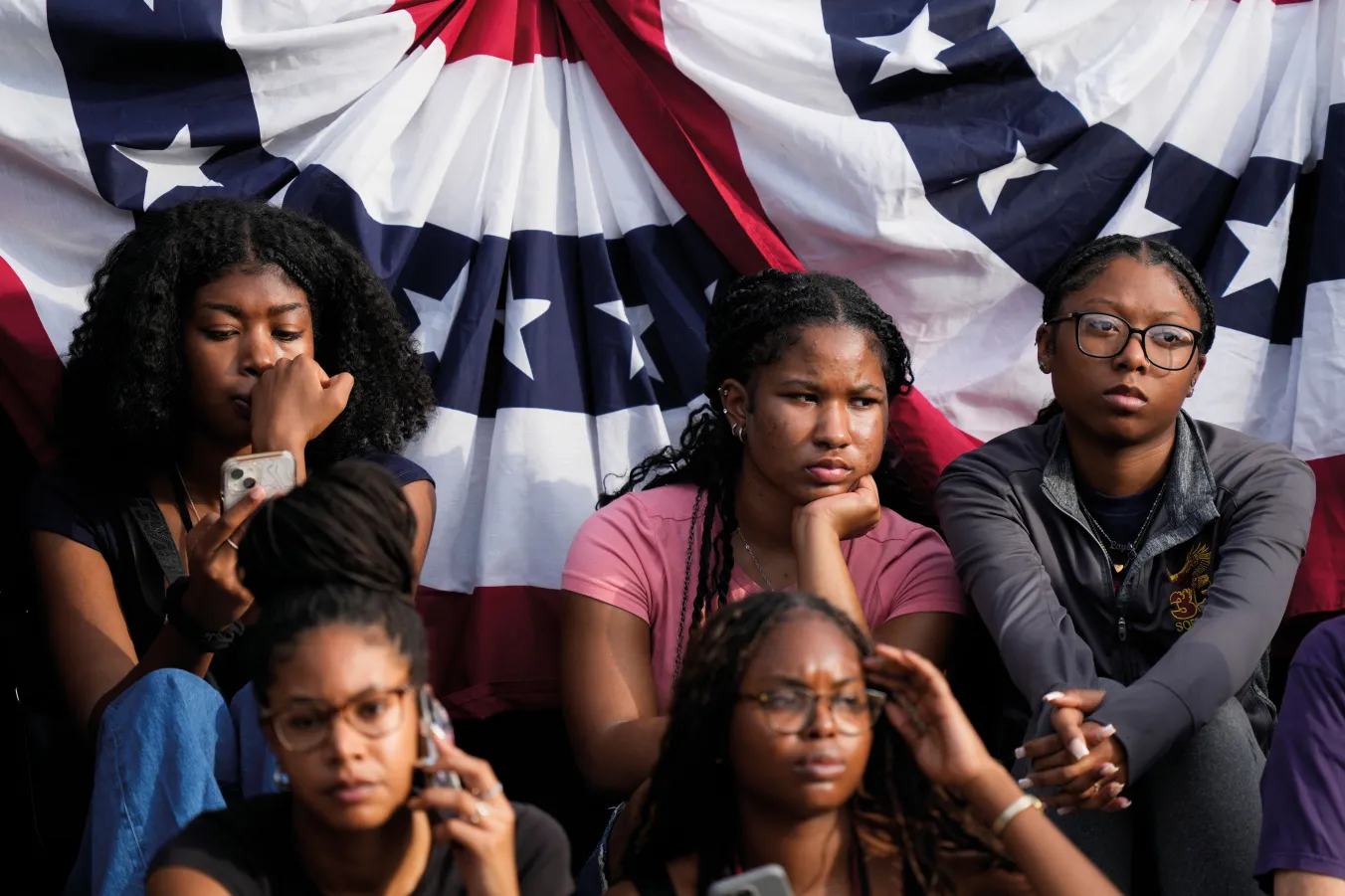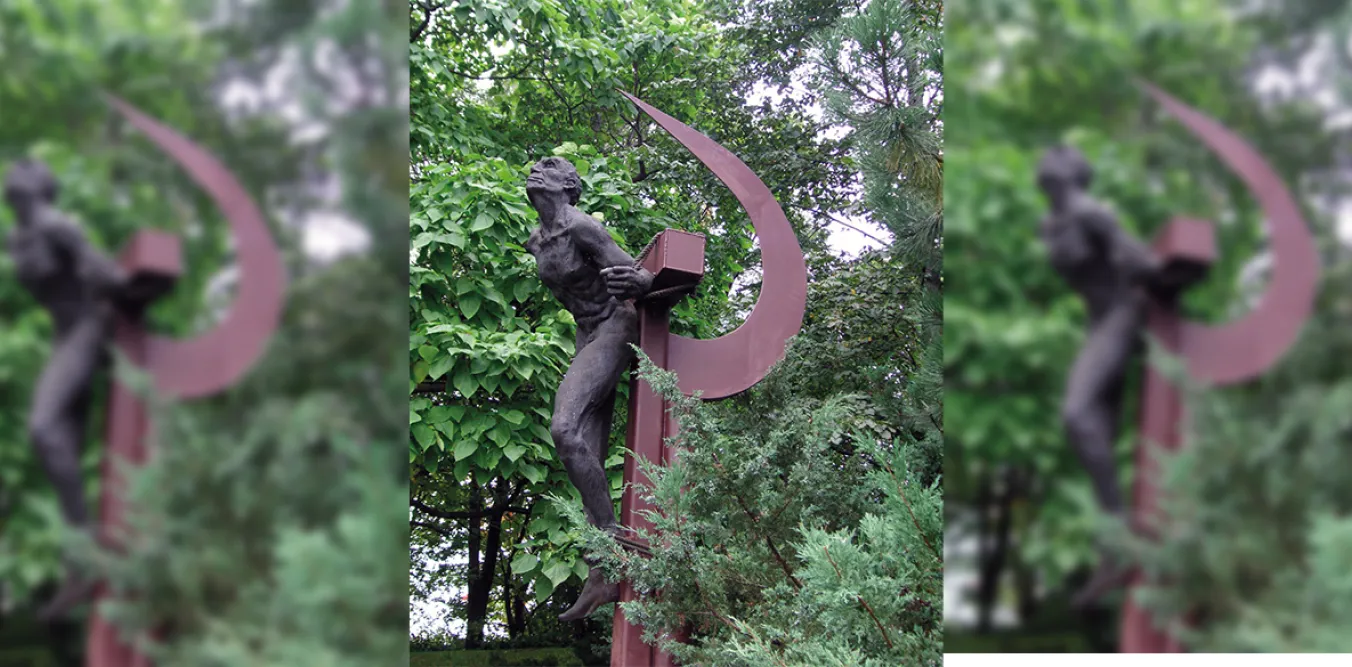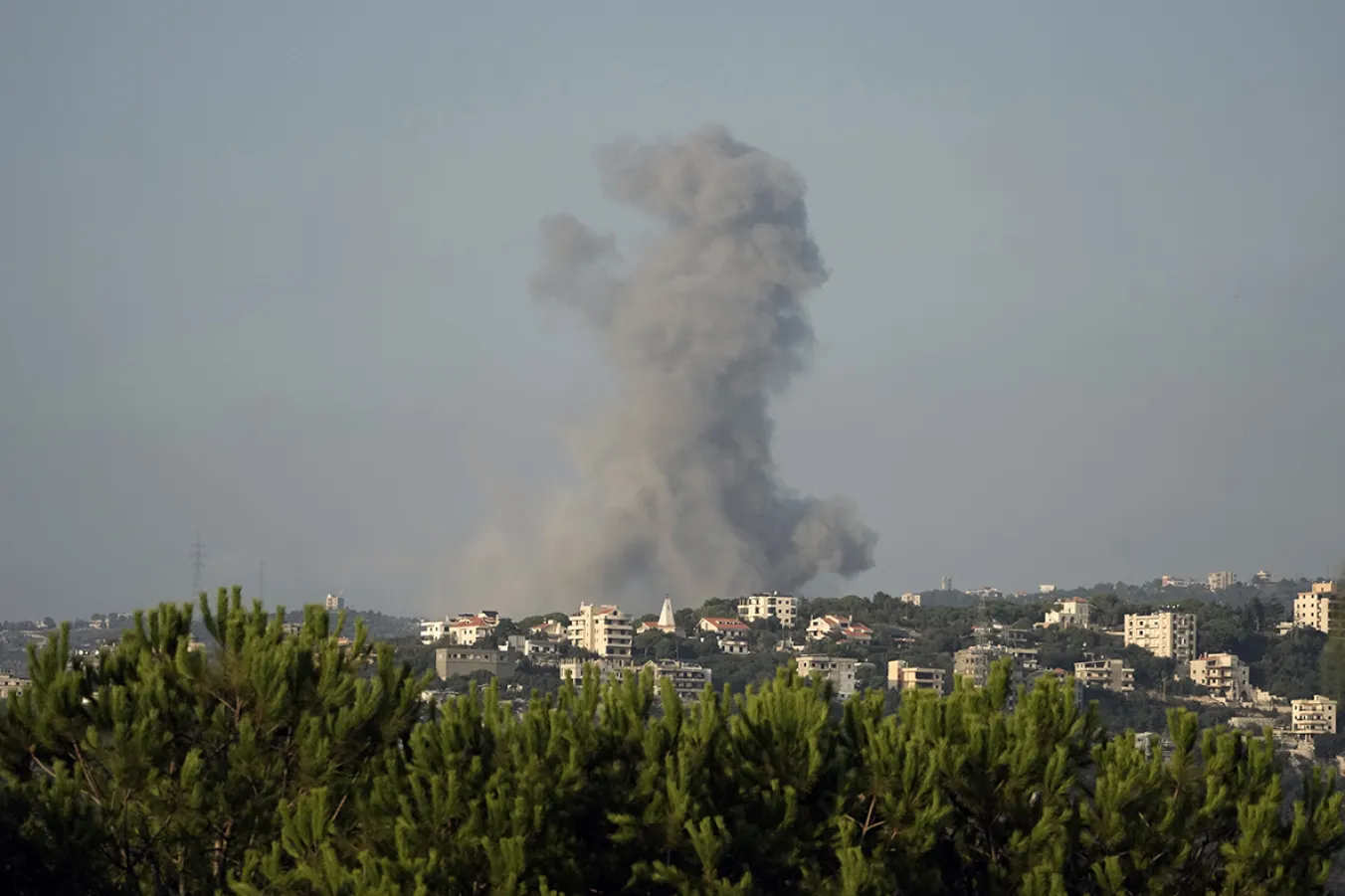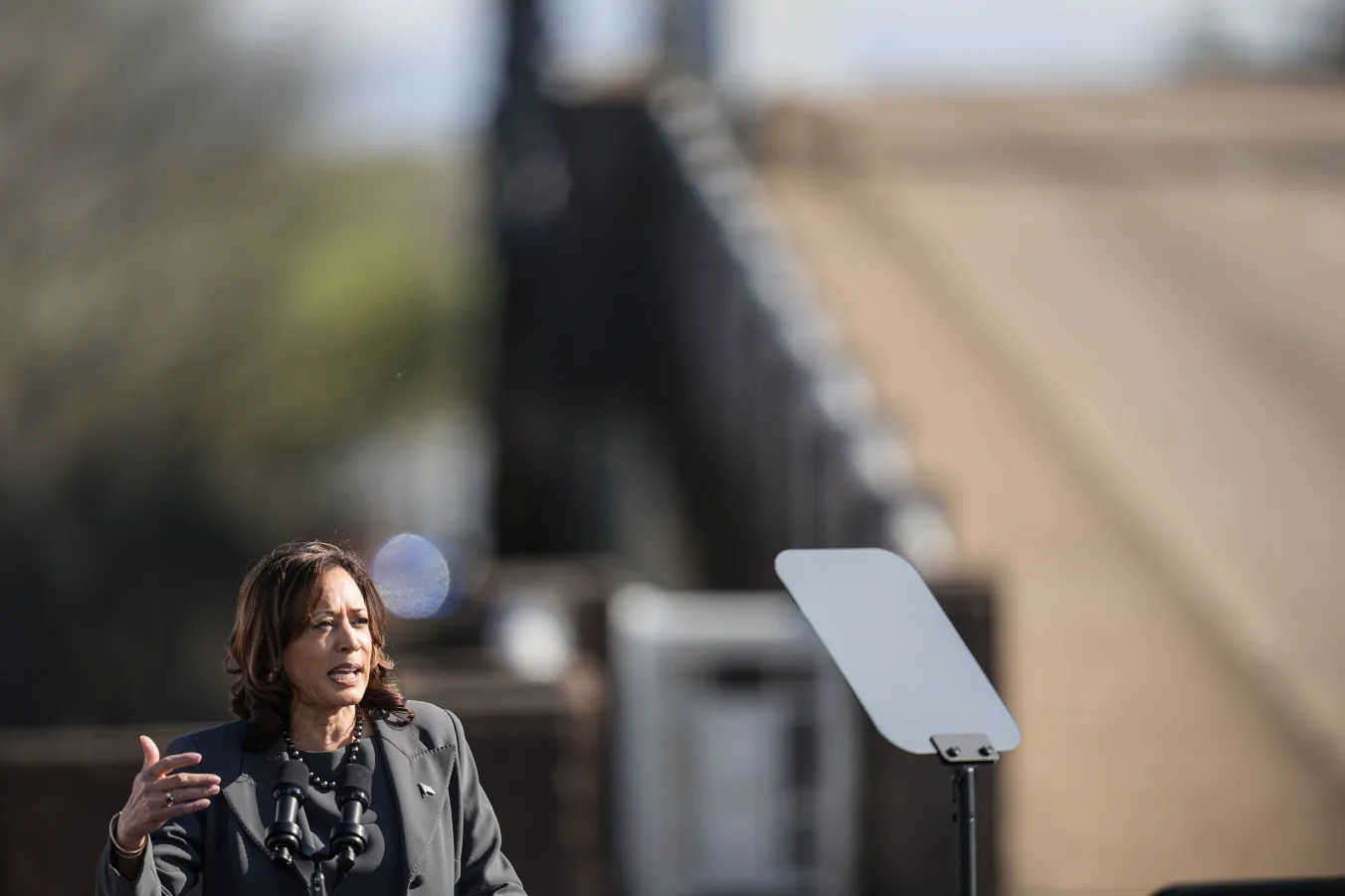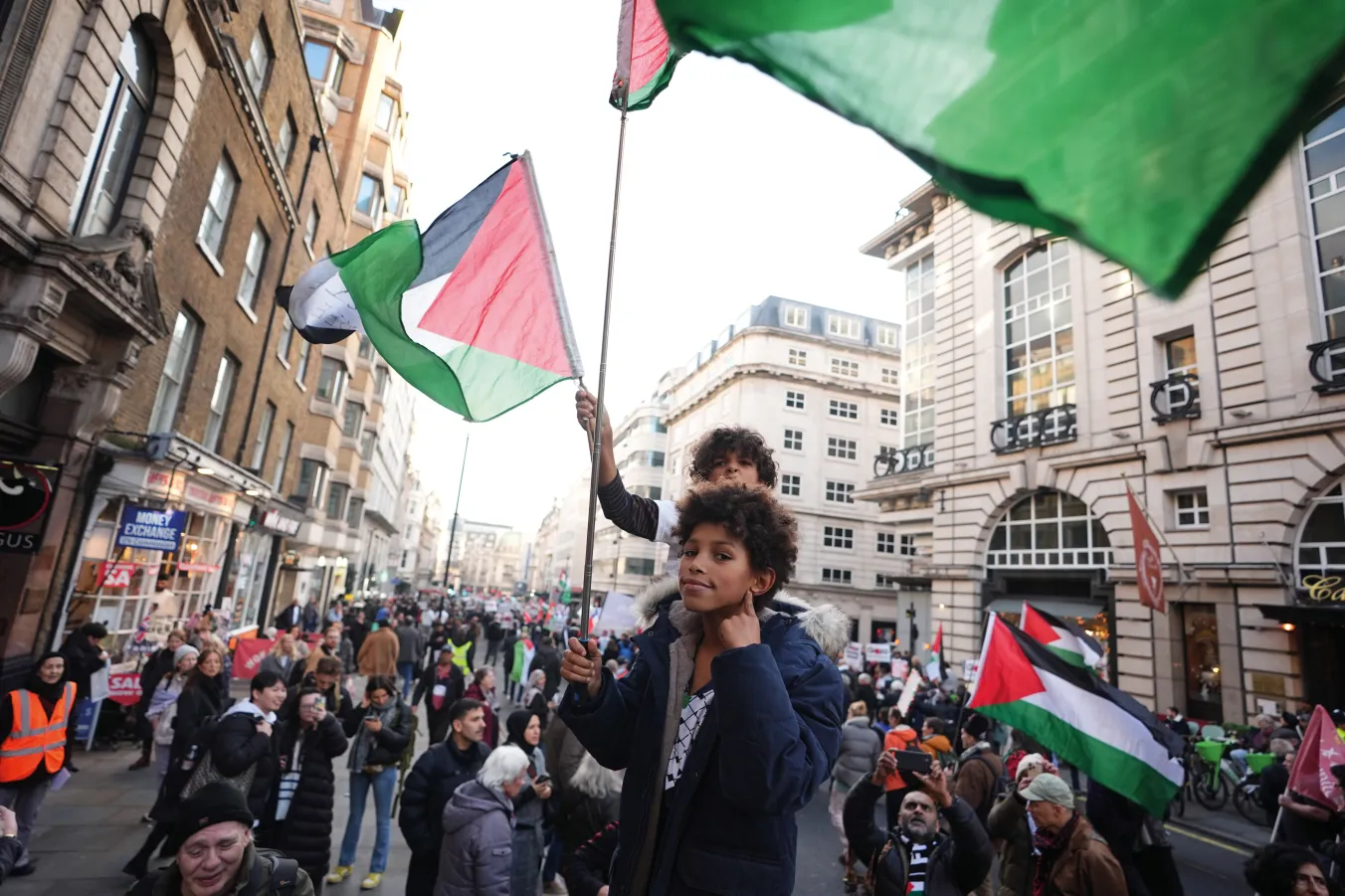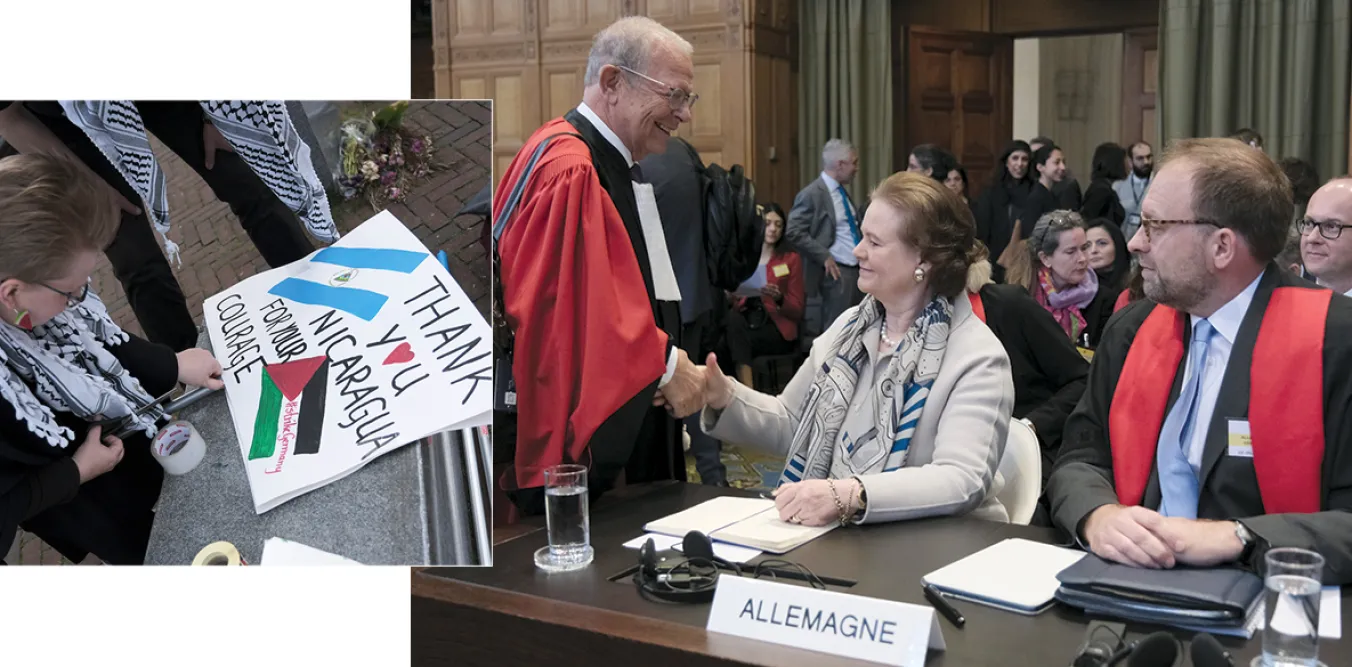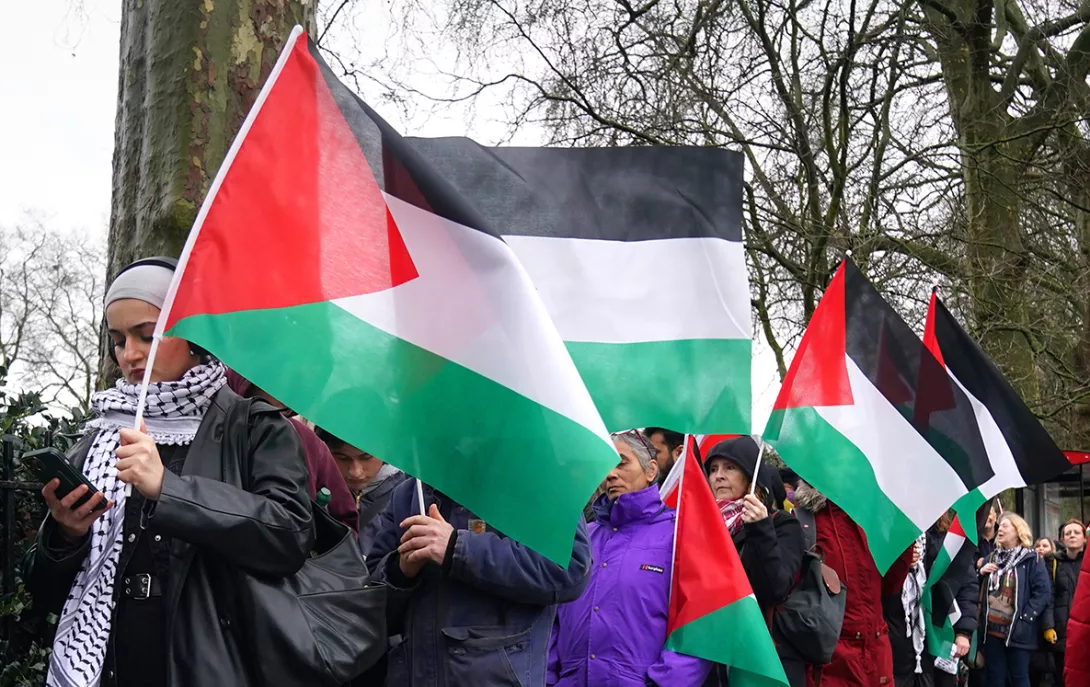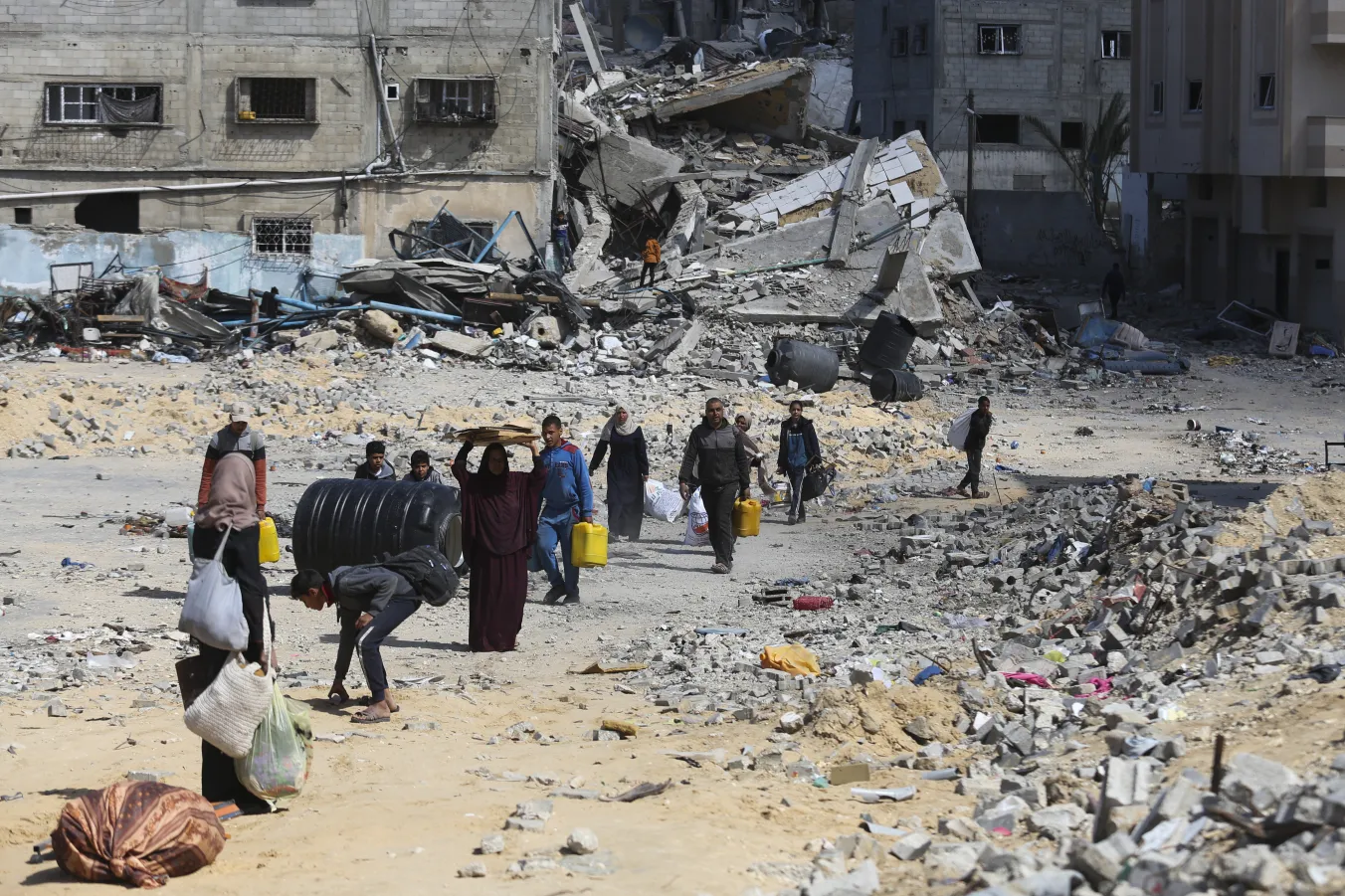
AT International Publishers’ book warehouse, workers are engaged in a struggle. It’s not a labour struggle, the kind of which you’re accustomed to reading about. No, they’re engaged in a struggle to keep up with orders.
Copies of the historic 1951 We Charge Genocide petition to the UN are flying off the shelves. Presented to the UN by William L Patterson, and Paul Robeson, the indictment — officially called We Charge Genocide: The Crime of Government Against the Negro People — documented page after page of evidence of the inhuman and racist practices of the US. It was produced by Patterson’s organisation, the civil rights congress (CRC), and asked for international action to halt what was happening to black Americans.
Now, with yet another genocide being waged, this time by Israel against the Palestinian people, many activists in the ceasefire movement are turning to this historic petition for lessons and insights on how to stop the destruction of a people by a ruthless state.
This past weekend alone, International Publishers, which produces the petition in book form, saw an explosion of orders. “The IP website has received hundreds of orders in the past 48 hours,” International’s vice-president, Tony Pecinovsky, told People’s World. “It’s unheard of; we’ve sold more copies in two days than we’d normally sell in an entire year.”
Assembled on the eve of the mass civil rights movement’s emergence in the US, We Charge Genocide detailed the innumerable beatings, frame-ups, arrests, lynchings, and police murders of black Americans that were the hallmarks of the Jim Crow era (and still repeated too often today).
“Out of the inhuman black ghettos of US cities, out of the cotton plantations of the South,” the introduction began, “comes this record of mass slayings on the basis of race, of lives deliberately warped and distorted by the willful creation of conditions making for premature death, poverty, and disease.”
Among the signatories who added their names to the petition were eminent African US historian and freedom fighter Dr WEB DuBois; George Crockett Jr, later a distinguished judge in Detroit who went on to serve many terms in the US Congress; New York City Communist councilman Benjamin J Davis, Jr; Ferdinand Smith, black leader of the National Maritime Union, Dr Oakley C Johnson of Louisiana; Aubrey Grossman, the labour and civil rights lawyer, and Claudia Jones, a Communist leader in Harlem later deported during the witch-hunts of the Red Scare.
Also signing were family members of the victims of “legal lynching”: Rosalee McGee, mother of Willie McGee, framed up on rape charges, and Josephine Grayson, whose husband, Francis Grayson, was one of the Martinsville Seven, framed and executed on false rape charges in Virginia.
Pecinovsky has no doubt that people are searching for this book because they are eager to see how African US leaders fought back against genocide and what strategies or tactics might be adapted from their struggles for today.
“There are parallels with the fight to save Gaza,” Pecinovsky said. “While the original CRC petition was submitted to the UN on behalf of what was then called the Negro people, the Convention on which it was based has much broader application and can easily be applied to the Israeli war in Gaza.”
Adopted on December 9, 1948, Article II of the Convention on the Prevention and Punishment of the Crime of Genocide clearly defined genocide as “any of the following acts committed with intent to destroy, in whole or in part, a national, ethical, racial or religious group, as such … a) Killing members of the group, b) Causing serious bodily or mental harms to members of the group; c) Deliberately inflicting on the group conditions of life calculated to bring about its physical destruction in whole or in part; d) Imposing measures intended to prevent births within the group; [and] e) Forcibly transferring children of the group to another group … .”
Even a cursory glance at media coverage of the war provides ample proof of Israel engaging in many such crimes against Gazans. As Pecinovsky put it:
“The Israeli government and military have been killing and continue to kill Palestinians; they have been and continue to cause serious bodily and mental harm to Palestinians; they deliberately inflict on all Palestinians conditions of life calculated to bring about their physical destruction; and they have imposed measures intended to prevent the birth of Palestinian children. This is all widely documented. It’s beyond debate.”
The only question possibly up for debate, he said, is whether Israel has forcibly transferred Palestinian children to another group. “However, it’s important to note that in the UN Convention,” he said, “it clearly indicates that ‘any,’ not all, of the acts must take place. So, even if what is happening in Palestine only met one or two of the criteria listed in the Convention, that should be enough — objectively — to charge Israel with genocide.”
Like the racism documented in the CRC petition in 1951, Israel’s war against the people of Gaza has been met with worldwide condemnation. Protests have erupted around the globe, largely spontaneously. And similar to what happened with the CRC petition in 1951, the international community is speaking loudly in condemnation as well.
“South Africa has charged Israel with apartheid and genocide, and this is of major significance,” Pecinovsky argued. “Like the US government’s support of the South African apartheid regime, unfortunately, US foreign policy is on the wrong side of this crisis, which if not brought to a peaceful, two-state resolution could continue to expand into a wider war, a regional war with Iran.”
Because of all this, the International Publishers website has seen a huge uptick in traffic as people try to track down the original CRC petition.
“People are sincerely interested in what genocide means,” Pecinovsky said. “And they are looking for the parallels themselves. The We Charge Genocide petition isn’t just a historic document. It’s an organising tool.”
To meet the needs of the ceasefire movement, International is boosting the promotion of We Charge Genocide and working overtime to get more copies in stock from the printer.
Pecinovsky reported that the company has dramatically stepped up its social media presence. “While our reach is still relatively small, we’re regularly sharing content on social media, Facebook, and X. We also have a weekly newsletter e-blast that we send out to our base of customers. We see a bump in direct website sales after the email blast, as well as after text blasts.”
Much of this work was already underway as part of International’s 100th anniversary revamp, but staff realise that even more has to be done to get this valuable book into its customers’ hands.
“Our readers and supporters across the country are also using We Charge Genocide in study groups and as part of educational sessions,” Pecinovsky pointed out. The petition is also starting to appear on the assigned reading lists of college courses around the country, so college bookstore orders are also pouring in at International.
“People want to learn about the petition, its place in history, the role of the CRC and the Communist Party, William L Patterson, and Paul Robeson. People are connecting what’s happening today in Gaza with the historic and current attacks on black lives,” he said.
“All of these struggles are linked, and the We Charge Genocide petition helps us draw those connections.”
This article appeared on Peoplesworld.org.
